

SCS Engineer’s Long Beach Headquarters sponsored and participated in the U.S. Vets Storm the Beach 5K/10K Run, Walk & Roll for Veterans event in Long Beach, CA.
U.S. Vets is an impressive organization supporting our Veterans in Long Beach, many of whom are homeless. These men and women who have served our country receive housing, employment opportunities, and counseling services from this private non-profit organization.
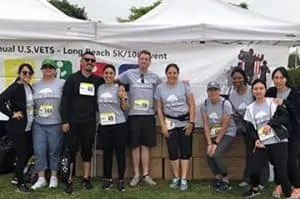
Visit our website and look for careers with our award-winning team of professionals.
SCS Engineers’ Arizona office is continuing to grow with the addition of Dana Justice, a marketing specialist, who previously worked at the award-winning firm’s office in San Diego.
“Dana brings fresh ideas, strong problem-solving skills, and creative business development tactics to the Arizona office,” said Dan Sola, Arizona project director of SCS Engineers.
Justice is responsible for supporting marketing and business development in Arizona, Nevada, and California for environmental services. Her job responsibilities include engaging in business development outreach and continuing to strengthening the firm’s client success culture. As an employee-owned environmental consultant and contractor, SCS excels at accomplishing specific technical needs and high quality but also strives to provide a superior working relationship with their clients.
“SCS has great company culture with a sense of family among the staff,” Justice said. “I’m thrilled to take on a larger role in the Southwestern region and new responsibilities at SCS.”
Justice earned a bachelor’s and master’s in business administration from California State University San Marcos. She lives in Mesa.
The Arizona office has completed 3,500 projects during the last 30 years for the solid waste industry, government, and other industries responsible for safeguarding the environment as part of doing business.
Wendell, a Senior Project Professional in the SCS Engineers Sacramento office became interested in photography 35 years ago. He had broken his ankle and needed something to do because he felt grumpy not being able to play tennis. His tennis partner loaned him a camera, some film, and his dark room.
Wendell was hooked.
Wendell’s beautiful photos capture the reason we work with our clients to protect our environment. See a few pieces of his organic work, and look for more soon.
Mr. Minshew has over 30 years of engineering experience. He specializes in civil engineering services in the planning, design, permitting, and construction management of solid and hazardous waste facilities. He is a licensed Professional Engineer in California and Nevada.
Thank you for sharing, Wendell.
For many oil and gas waste processing and disposal facilities, and water midstream facilities, groundwater monitoring is mandatory. The ongoing quarterly monitoring well sampling is a long-term operating expense that presents opportunities for cost reduction by employing new sampling technologies that reduce labor time and cost.
Conventional monitoring well sampling traditionally requires bulky and expensive pumps and support equipment. Time-consuming to use, these also require specialized training and are prone to mechanical failure in oil basin extreme weather conditions. Straightforward, lower-tech methods are available that can substantially lower field costs; in some cases, by up to 50 percent.
Best Practices
If your sampling results indicate potential problems, we recommend bringing in groundwater analytic expertise; this is where you want to concentrate your environmental compliance resources.
It is essential to conduct one or more background sampling events before a facility opening to interpret sampling results that may reveal facility issues. At SCS, we’ve seen many documented cases of facilities that unknowingly were operating over groundwater already contaminated by other nearby facilities or tainted by naturally occurring petroleum in the subsurface.
Another cost-reduction best practice is the application of statistical analysis to the lab results. While not always required by regulators, there are well-proven analytical tools that can answer questions about the source of apparent anomalies in the data. Ongoing application of these tools—even if only done internally—can reveal problems early and solve others before they become a liability.
O&G Environmental Services and Permitting
Jim Lawrence, SCS Engineers professional hydrogeologistAbout the Author: James Lawrence of SCS Engineers is a hydrogeologist with 25 years of experience in all aspects of the distribution and movement of groundwater in the southwestern and central portions of the U.S. Jim leads the groundwater monitoring program for SCS in the Permian Basin area. He works to resolve problems that arise with groundwater monitoring, including assessment monitoring, corrective action, landfill and natural gases, and alternate source demonstration issues.
His responsibilities include supervising the sampling, data reporting, and statistical analysis. His job experience includes extensive permitting-related hydrogeological characterizations, the design and implementation of groundwater monitoring systems, assessing groundwater geochemistry, soil and groundwater assessment investigations, risk reduction rules, groundwater modeling, design and implementation of numerous large dewatering systems, design of water supply wells, managing waste injection wells, managing CERCLA and RCRA investigations, and waste analysis/characterization programs.
Mr. Lefebvre, a Professional Engineer in nine states recently joined the SCS Environmental Services team. He brings over three decades of experience as an environmental engineer and consultant specializing in soil and water remediation services for both government and business sectors.
Mr. Lefebvre manages remedial action plans, multi-media contamination assessments, industrial wastewater treatability studies and treatment system designs for SCS’s clients. He serves as an expert witness as well. He has designed and managed industrial wastewater treatment systems for the pharmaceutical industry; successfully remediated groundwater at petroleum Superfund sites; restored soil and groundwater at several RCRA sites; and was the Engineer of Record for a South Florida Water Management District (SFWMD) project to protect the Everglades National Park.
Welcome to SCS!
Learn more about SCS Engineers work:
An environmental insurance claim is simply the response and mitigation of an environmental issue or event paid for by an environmental insurance policy. Similar to an auto or home insurance claim, a company or individual purchases this type of policy to protect them in case a matter arises about their facility, operations, or property resulting in a regulatory requirement for investigation and remediation; forming the basis for a submitted claim. Such responses cost money, often a lot of it, and the environmental insurance policy is there to pay for the costs associated with the investigation and remediation of any environmental issues.
Any environmental issue can result in an environmental claim, so it is essential that you have the right policy in place to cover a particular claim. Typical issues or events include:
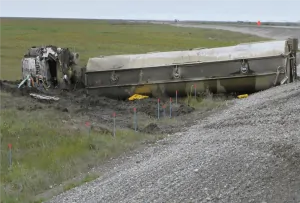
Insurance clients submit notice to the insurance company that an environmental issue occurred or was discovered which requires investigation and corrective action. The onus is on the client to provide sufficient information to substantiate a claim submittal. The insurance company reviews this information in their evaluation of coverage for the issue under the policy.
When a new claim is submitted to the insurance company, the client must provide information that substantiates that an issue exists and that further investigation and corrective action is required. Often their substantiation consists of the initial technical details about the nature and extent of the environmental problem. Claims analysts generally have a strong legal background but may lack technical environmental expertise; this is when insurance support services become valuable. The following paragraphs summarize each step in the process and how SCS insurance support assists claims analysts through the process.
Once the insurance company receives a notice of claim, they determine whether the client’s policy provides coverage for the specific issue or event that constitutes the claim. A claims analyst evaluates the specifics of the claim to determine if the associated details and circumstances fall within the specifics of the client’s policy. If so, coverage is usually accepted. If not, coverage is generally denied.
SCS’s role is to provide an evaluation of the technical aspects of the claim so that the claims analyst can take the distilled facts and compare them against the specifics of the policy; often called a “Source and Timing” evaluation. Take, for example, an underground storage tank (UST) release at a gasoline station. In this example, free product (gasoline) is observed in an on-site monitoring well where no free product has previously or recently been identified.
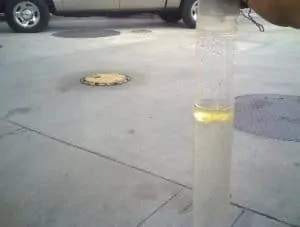
The station owner or their environmental consultant reports the apparent new release to the regulator, and a confirmed discharge is recorded. The property owner than notifies the insurance company of a gasoline release to the environment.
As part of the “Source and Timing” evaluation, SCS’s insurance support reviews tank system leak detection and inventory records, tank system tightness testing records, previous groundwater monitoring data, reports of any earlier releases at the facility, and any other information or data about the facility and the subject release. The goal is to identify:
If enough information is available to make these determinations, then the claims analyst compares the SCS report to the coverage specifics and exclusions included in the policy; determining if the event is covered. The claims analyst will usually try to make a coverage determination on their own if the facts are relatively straightforward, but often that is not the case, and the assistance of insurance support services is necessary.
This process can be straightforward, such as in the case of a tanker truck rollover or industrial facility chemical spill, but is often more complicated when insufficient information is available to make a source and timing determination. In the latter case, the claims analyst issues a Reservation of Rights letter, stating that the insurer is not accepting or denying coverage at this time as the circumstances of the claim are still under evaluation and investigation.
Claims can be denied if the incident occurs before or after the policy period; if the source or type of incident are not included or are specifically excluded under the policy; or if the incident occurred because of the client’s negligence. If coverage is denied no further actions are generally necessary on the part of the insurance company. Whether a claim is accepted or denied is often more complicated than what we’ve discussed here.
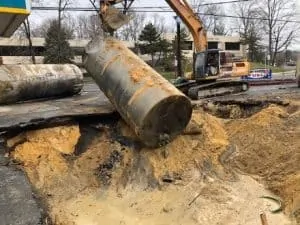
The claim is accepted; undoubtedly good news for the client. What happens now is that the claim becomes “Active,” requiring among other things for the claims analyst to set reserves. A reserve is an estimate of what the claim is going to cost the insurance company. Your insurance support consultant can provide a rough approximation of the estimated costs to achieve regulatory closure, which includes all expenses incurred from investigation through remediation, post-remediation monitoring and reporting.
Early in the life of a claim, these are preliminary estimates that are refined as a project progresses, often requiring the claims analyst to adjust their reserves; important to the insurance company as future reserves impact financial forecasts. Insurance support services will develop the cost-to-closure estimate based on all available information and data, as well as their professional experience on similar projects. The insurer wants the most experienced environmental consultants and engineers on the case because their estimates are more likely to be on target and identify potential regulatory issues or risks.
From the insurer’s standpoint, the primary goal is to maintain a high level of responsiveness to their clients and process requests for reimbursement against the claim. The role of your insurance support team can continue by managing quality control and evaluation of site-specific activities; ensuring that the investigation and cleanup are reasonable and appropriate given the environmental conditions at the site, all applicable regulatory requirements, and costs consistent with industry standards for recovery. The client and their environmental consultant are required to provide the insurer and the insurance support consultant documentation of the work as follows:
Over the life of a claim, insurance support may correspond with the project consultant on behalf of the insurer, conduct site visits, and be asked to participate in meetings, conference calls, and mediations. The overall goal of your insurance support consultant is to assist claims analysts in closing a claim in the most time-efficient, cost-effective manner possible within all regulatory rules and guidelines.
Once an active claim−environmental project has achieved regulatory closure, the claims analyst begins the administrative process of closing the claim. From SCS’s insurance support standpoint, all that remains is to obtain the appropriate documentation from the regulator confirming that the subject project is approved for closure and that no further actions are required.
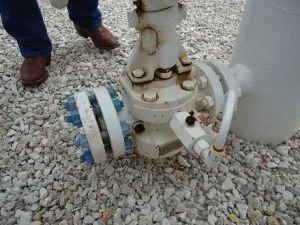
There are other circumstances which may result in closing a claim, such as exceeding the maximum total cost that can be paid out by the policy, non-compliance with policy requirements, or new information coming to light which results in a change in coverage position by the insurer. In some cases, such as when there is a change in coverage position or the cause of the issue can be attributed to a third party equipment failure, the insurer may seek to recover costs expended from the client and third-party policies. That process, called subrogation, may require the expertise of your insurance support specialist and at times their testimony as an expert witness.
There are several ways that SCS helps our insurance clients and other clients. The involvement of insurance companies is becoming more pervasive throughout environmental consulting and engineering in all business sectors. The combination of SCS’s industry expertise, contacts associated with our insurance support services, and our Federal, State, and local level regulatory expertise brings more knowledge and efficiency to each project. SCS offers a wide range of engineering and environmental services, a national presence, and a positive established industry reputation.
Our clients appreciate being able to draw upon our insurance-related expertise to assist them with their submittals, interpreting insurance requirements, and liaising with insurance companies as part of our core capabilities.
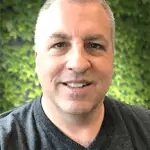
Mr. Michael Schmidt is an accomplished industry leader with nearly 30 years of progressively responsible experience in the environmental consulting and environmental insurance industries. He has specific expertise focusing on the evaluation of environmental risks and liabilities associated with insurance claims and underwriting, site investigation and remediation, due diligence, and project management.
Feel free to use our website to share our blogs, whitepapers, case studies, events, and news. SCS respects your privacy.
Next year… 2020 will be the 30th year of SCS Engineers keeping roads in Madison, WI. clean.
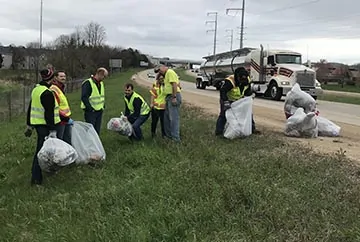
Christina Finizio, a recent graduate from the University of Florida now holds a Bachelor of Science in Environmental Engineering. Her journey with SCS began last summer when she joined the Boca Raton team as an Intern. Christina did not always know she would become an engineer, she thought she would study International Business just like her sister, but that quickly changed.
In high school, she attended a Hackathon event that took place in San Francisco, and that is when her interest in engineering began. In this event, she got a glimpse of computer science and other areas; her instincts kept drawing her to engineering. She looked at her options, and many did not seem appealing to her until she looked into environmental engineering. It ultimately made sense to go that route; she always had an interest in the environment and was the President of the Environmental Club in high school.
While in college, she participated in an exchange program and flew out to Madrid for the spring semester. Her experience was unforgettable. During this time, she made friends from all over Europe and the world, improved her Spanish and explored the world of tapas. While there, she took care of business and had an internship with Sacyr’s (Valoriza Servicios Medioambientales), a construction firm, where she joined their Environmental Engineering group. Her internship focused on environmental and solid waste. This was the first time she was exposed to the solid waste industry, and where her interest grew.
After completing her exchange and internship program, she arrived home with a clear idea and knowledge of what she wanted to do next. She did her research and found a well-known professor who teaches and researches in solid waste at her university. She took his classes and studied with his group so she could become more knowledgeable.
Christina is was involved on campus and joined many student organizations. At one of the Society of Women Engineers’ (SWE) event, she met SCS’s Director of Talent Acquisition, Jennifer McCafferty. Christina was interested in SCS’s work and kept in touch with Jennifer. The following summer she applied to SCS’s internship program and was offered an internship in the Boca Raton, Florida office. She enjoyed the experience because it focused on solid waste management her primary area of interest.
Shortly after graduating, Christina joined the SCS team as an Associate Professional at the Tampa, Florida office. She loves the culture, and enjoys working with her team; they are exceptionally friendly and are always willing to lend a hand. She feels her success is in part, due to her team’s focus on their clients’ needs and believes this focus and the team’s communication style is valuable to clients, her team and herself.
Every day her work is different; she can be out in the field one day and in the office the other. She works on a variety of reports such as annual air monitoring and greenhouse gas reports; performs construction oversite for gas systems and system expansions. Her internship and new responsibilities give her a deeper understanding of the solid waste business, and how landfill gas can become a renewable energy resource rather than an environmental impact.
One of her biggest challenges is being able to imagine or see what is going on in the landfill. Landfills are complex requiring environmental monitoring and multiple systems for continuous protection; no doubt that Christina will continue to learn from the best in the business and continue to excel as an Associate Profesional.
Her advice to new interns is to always ask for help when you need it and offer support to those around you. You will be surprised how much you will learn from different areas and how friendly and willing to mentor everyone is. She feels this mantra was what prepared her for her current position.
Fun facts you should know about Christina; that she loves to salsa dance, cook, and travel. She is the first one in her immediate family to hold a degree in engineering and the STEM field. Christina is a valuable member of the SCS Tampa office team and the firm.
SCS Engineers is fortunate to include Christina and our many other Young Professionals at SCS on our teams.
Jeffrey Reed, P.E. is now leading SCS Engineers business operations in Texas, including all environmental consulting, landfill, landfill gas, and solid waste business. He commences his responsibilities immediately, under the title Business Unit Director, and is managing the staff and business operations of four offices. His primary office is located in Houston, Texas.
Jeff, a Professional Engineer, licensed in Alabama, Florida, Louisiana, Minnesota, Mississippi, New Mexico, North Carolina, Oklahoma, South Carolina, and Texas has a broad range of environmental expertise. He has provided design and consulting services for projects in 26 states across the U.S., Canada, and Mexico.
Jeff is a Vice President of SCS Engineers and a National Expert on Landfill Design and Construction Quality Assurance for the firm. He has over 30 years of experience working in the solid waste industry. His project experience includes stormwater management, liquids management and leachate control, erosion control, hydrogeological/hydraulic analysis, landfill design and permitting, geosynthetic lining and cover systems, stability analysis, and construction quality assurance. He is a member of the American Society of Civil Engineers and the Solid Waste Association of North America.
Kevin Yard, PE, BCEE, SCS’s former Texas Business Unit Director, will continue to support key projects in Texas while he manages clients nationwide that are investing in new infrastructure and processes compatible with their firms’ environmental climate goals.
“Over his ten+ years with SCS, Jeff has demonstrated his leadership and capabilities resolving complex environmental challenges,” said Kevin Yard. “Jeff provides the standard of quality and services to our clients who rely on SCS to support their business operations while meeting rapidly-changing air, water, and soil compliance standards.”
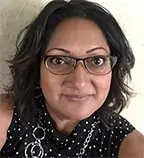
Depi holds a BA from UC Irvine and is active in the Society of Marketing Professional Services, Association of Proposal Management Professionals and the Business Development Association of Orange County. She is also a former member of the Professional Environmental Management Association.
Jed Douglas, a senior project advisor, brings more than 20 years of experience in project management, health and safety, air quality and more. He will direct and develop SCS’s industrial hygiene practice in the Southwest region leading business development and client service, managing projects, and managing staff. Jed is a certified industrial hygienist and safety professional, and an accredited U.S. Green Building Council LEED Professional.
In the community, Jed has served on the board of the Big Brothers and Big Sisters of the North Coast, the board of the Humboldt Area Saltwater Anglers, and as Editor of the Humboldt Bay Mycological Society newsletter.
Welcome to the SCS team – driven by client success!